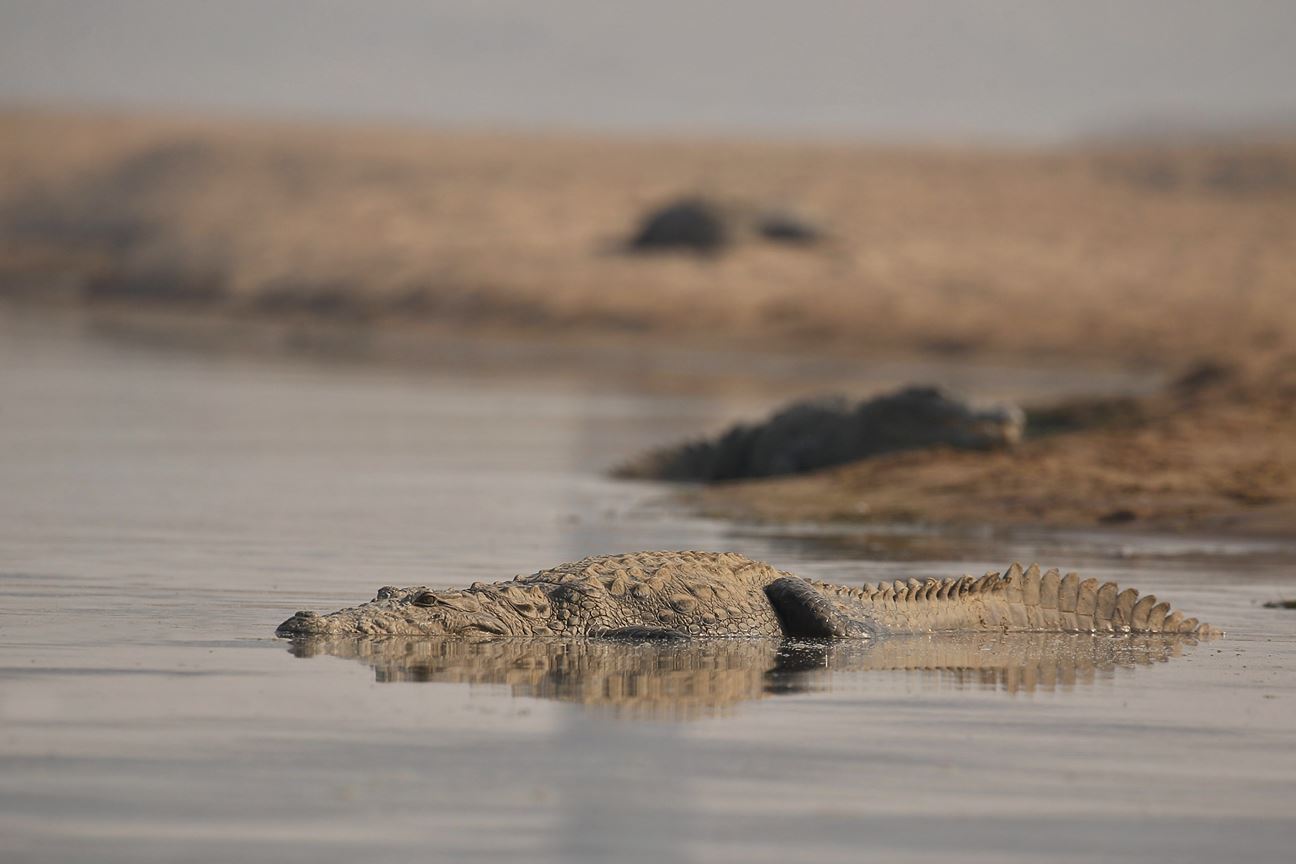Simultaneously revered and feared in Hindu mythology and culture, here’s a brief history of crocodiles in Hinduism!
The crocodile has had a strange relationship with the people of India. It has been both revered and feared, considered a protector and a menace. Fishermen alternately considered them friends (as they keep the rivers clean) or as nuisances (for eating their catch). Forts in medieval times were surrounded by moats filled with hungry crocodiles, and soldiers wore armour made from their skin. However, our ties to these reptilians go further way back.
One of the earliest known portrayals of crocodilians in India is from the Harappan civilization depicted on a seal.
A Vehicle of the Gods:
Makara is the most commonly-known depiction of the crocodile. However, the form of Makara changes from place to place. It’s often shown as a hybrid creature with the jaws of a crocodile. Makara is the vehicle of the river Ganga and the river Narmada. It is also the vahana of Varuna, the ocean. It is also associated with Kamadev, the god of love. His consort carries the crocodile with her wherever they go.
Astrology:
Makara is also the equivalent for Capricorn in the Hindu calendar – the tenth of the twelve lunar months.

In Hindu mythology, crocodiles are considered guardians of gateways and thresholds. (Image Courtesy- PhotocechCZ-Shutterstock)
Gajendra and the Crocodile:
Gajendra is the King of Elephants. Once, he was keeping guard, as was his custom, while the females of his herd bathed in the river. A crocodile was disturbed by them and caught his leg. He held onto Ganjendra’s leg for a thousand years until Gajendra called upon Vishnu to help him. Vishnu then used his sudarshana chakra to slay the crocodile. Devdutt Pattanaik explains the meaning of this story as: “The king of elephants surrounded by cow-elephants is a metaphor for the sensual delights of the world, the crocodile representing the bondage of materialism. Liberation comes when the elephant (sexual power) raises its trunk and offers a lotus (devotion) to the Lord.”
Makardhwaja:
Makardhwaja is the son of the monkey Lord Hanuman and a makara. He was conceived when Hanuman took a dip in the sea to cool off after burning Lanka. A drop of sweat from Hanuman dropped into the mouth of the Makara, impregnating her. There are temples dedicated to Makardhwaja in Gujarat, Maharashtra, Madhya Pradesh, and Rajasthan.
Crocodile Worship:
The crocodile is also worshipped in Goa during a festival called Manngem Thapnni. The villagers fashion a crocodile out of the mud with seashells for eyes and offer a sacrifice of an egg or a chicken. There are many reasons for this worship – some believe that it will protect them and keep crocodiles from roaming the paddy fields, while others believe it will appease Varuna the rain god.
Love them or fear them; it’s no secret that the population of India’s three crocodilian species are declining. With blatant disregard for the Wildlife Protection Act, 1972 (WPA) by the government in its attempt to move 300 freshwater crocodiles (protected under Schedule I of the WPA) recently, immense habitat destruction and only a tiny population of the gharial in the wild, the future of the crocodilians in India remains fuzzy.